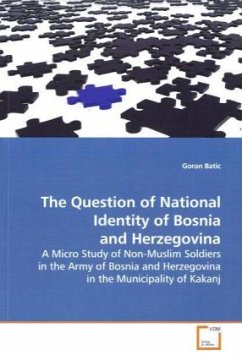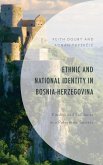For Bosnia and Herzegovina, the beginning of the
1990 s meant a period of nationalistic projects
within the country. Three sides were created, and
the relevance of ethno-religious origin was high as
never before - strong attachments to the ethnic and
religious identities. Croats aligned with the Croat
Defence Council (HVO), Serbs with the Yugoslav
People s Army (JNA) and Muslims with the Army of
Bosnia and Herzegovina (ArBiH).
However, there were exceptions / resistance
discourses to the general trend of division along
ethno-national lines. It is exactly this exception
the author finds worth investigating. Tempted by the
appealing controversial quality of a research on
those exceptions, and in hope to reveal elements of
a hypothetical, 'all encompassing' national identity
of Bosnia and Herzegovina, the author pursues a
micro study of non-Muslim soldiers in the Army of
BiH.
1990 s meant a period of nationalistic projects
within the country. Three sides were created, and
the relevance of ethno-religious origin was high as
never before - strong attachments to the ethnic and
religious identities. Croats aligned with the Croat
Defence Council (HVO), Serbs with the Yugoslav
People s Army (JNA) and Muslims with the Army of
Bosnia and Herzegovina (ArBiH).
However, there were exceptions / resistance
discourses to the general trend of division along
ethno-national lines. It is exactly this exception
the author finds worth investigating. Tempted by the
appealing controversial quality of a research on
those exceptions, and in hope to reveal elements of
a hypothetical, 'all encompassing' national identity
of Bosnia and Herzegovina, the author pursues a
micro study of non-Muslim soldiers in the Army of
BiH.








